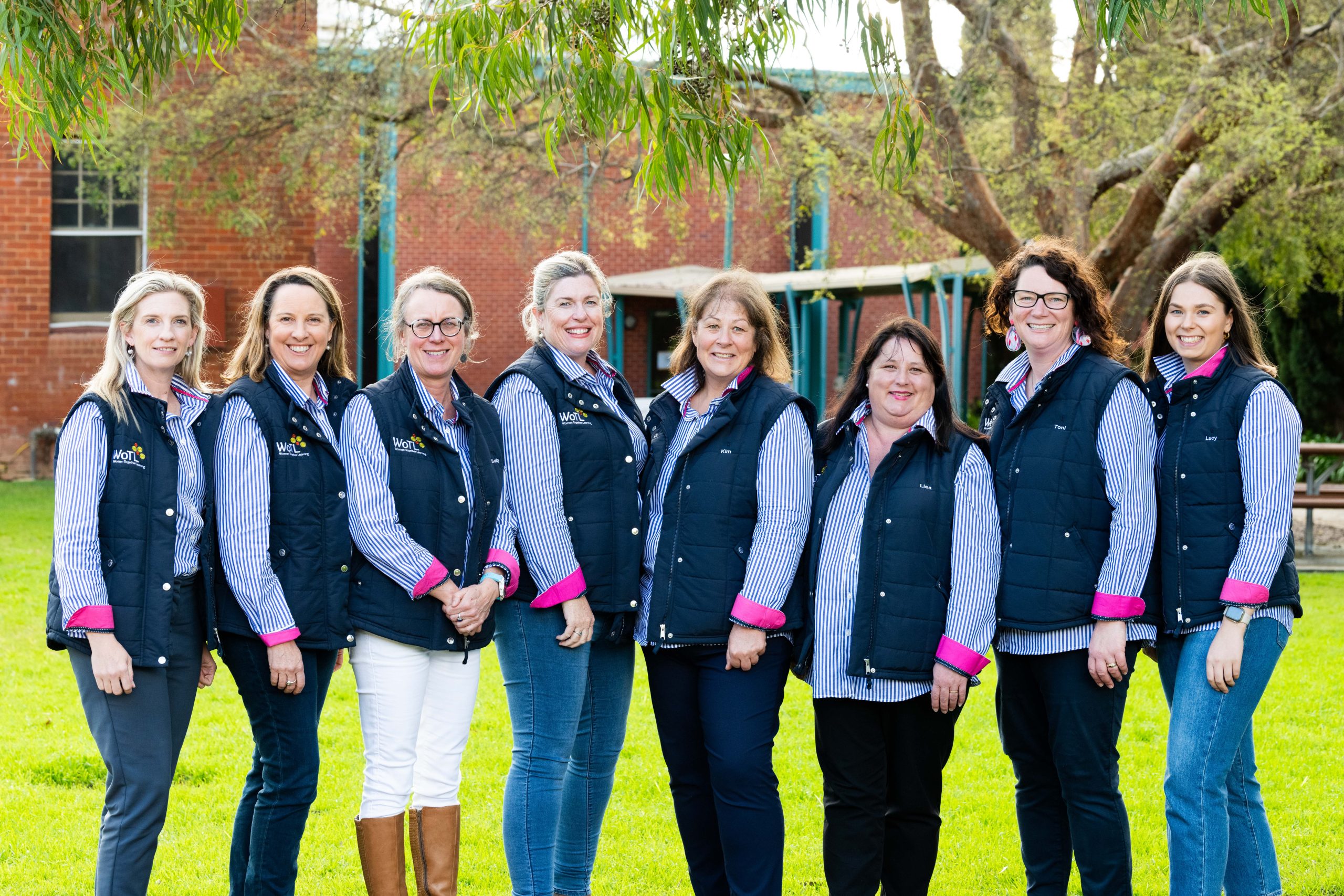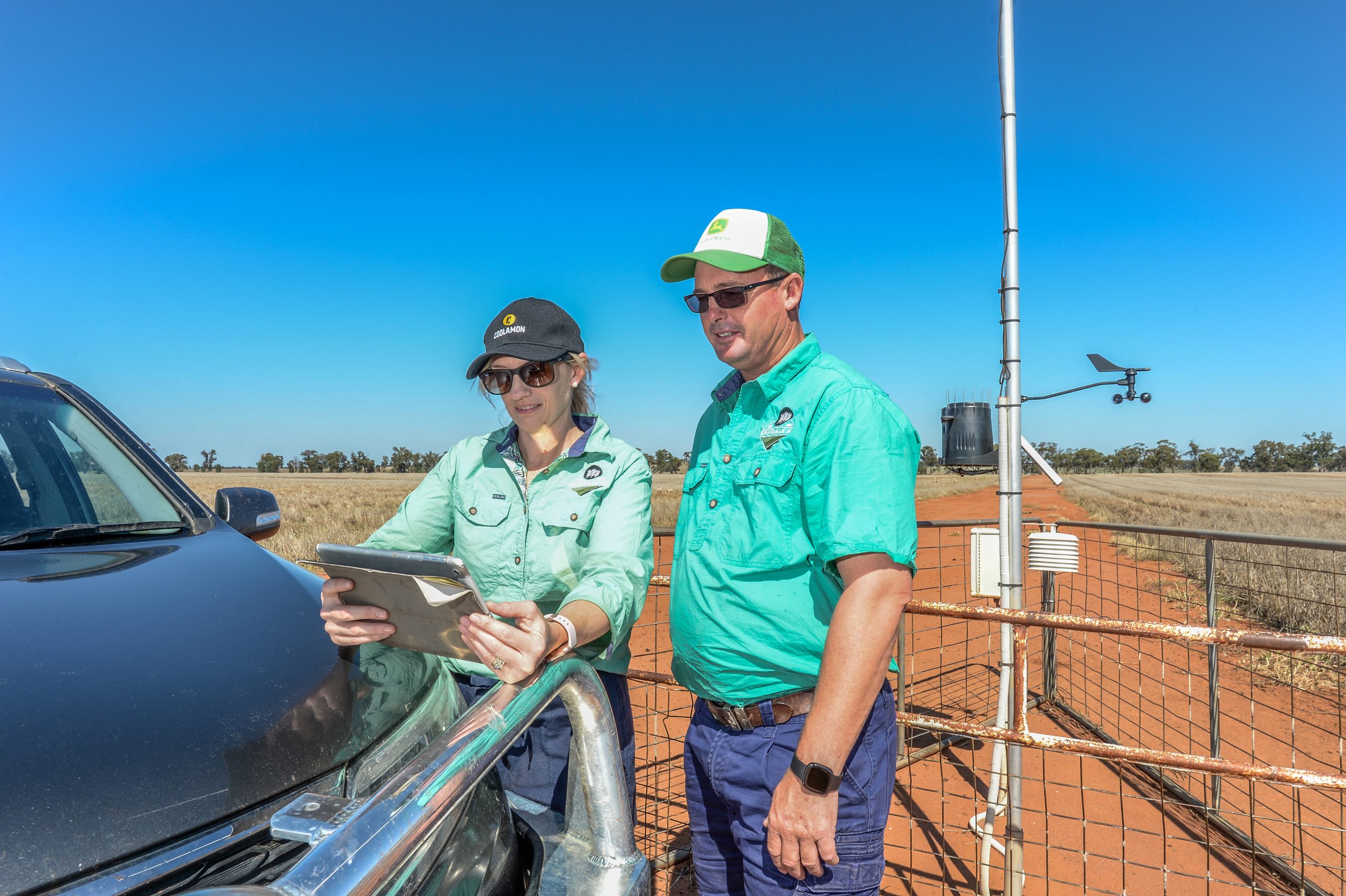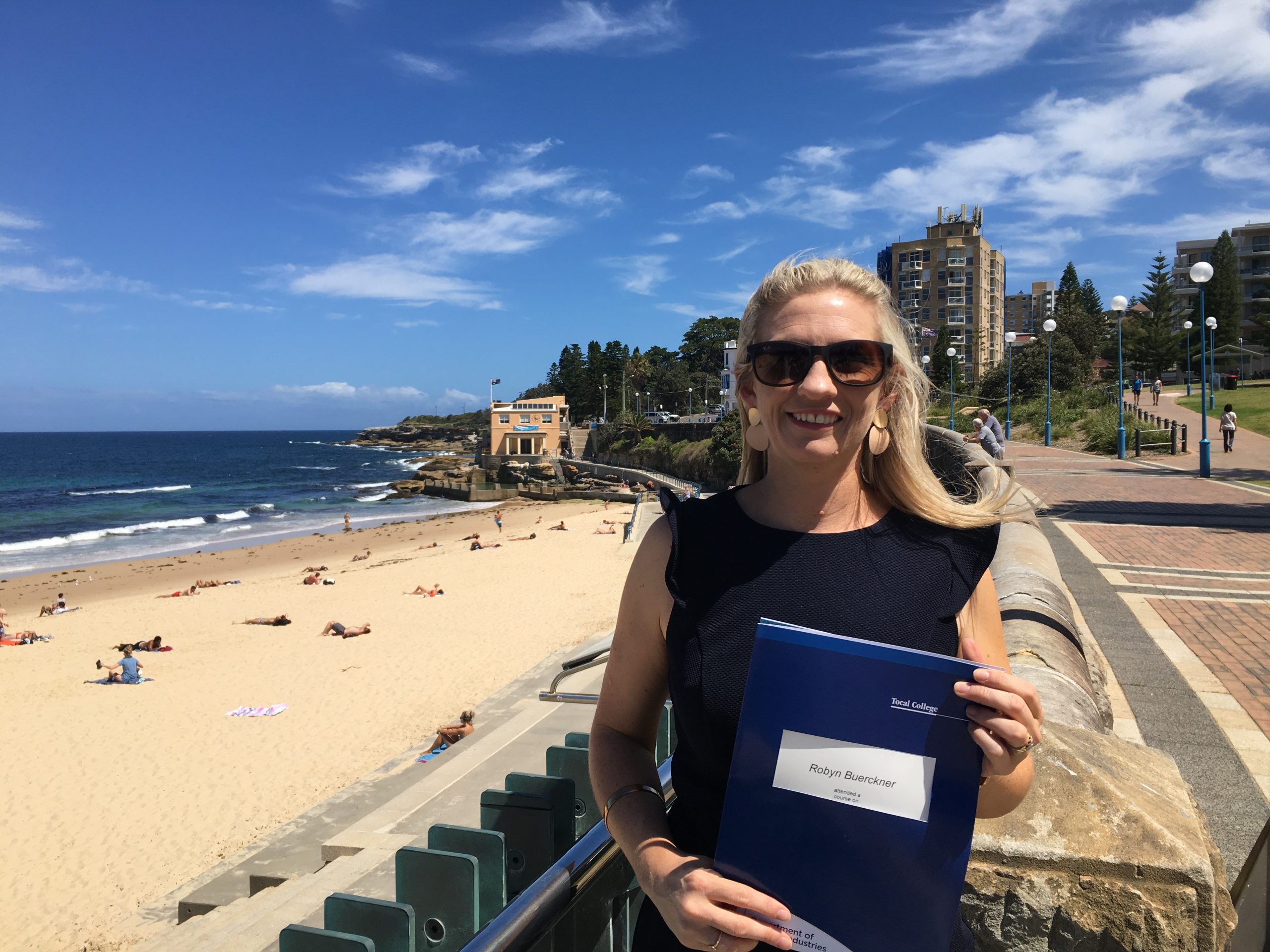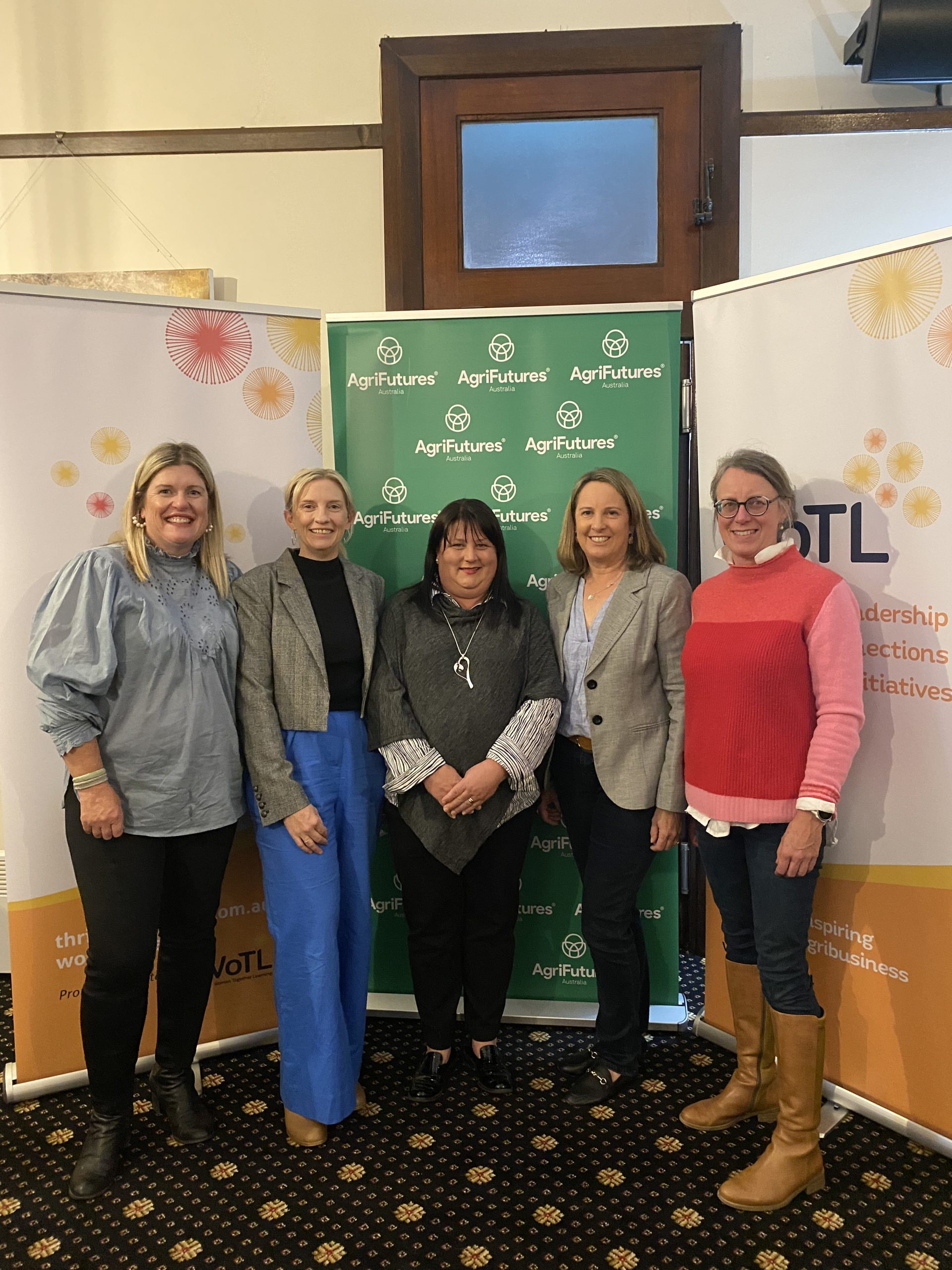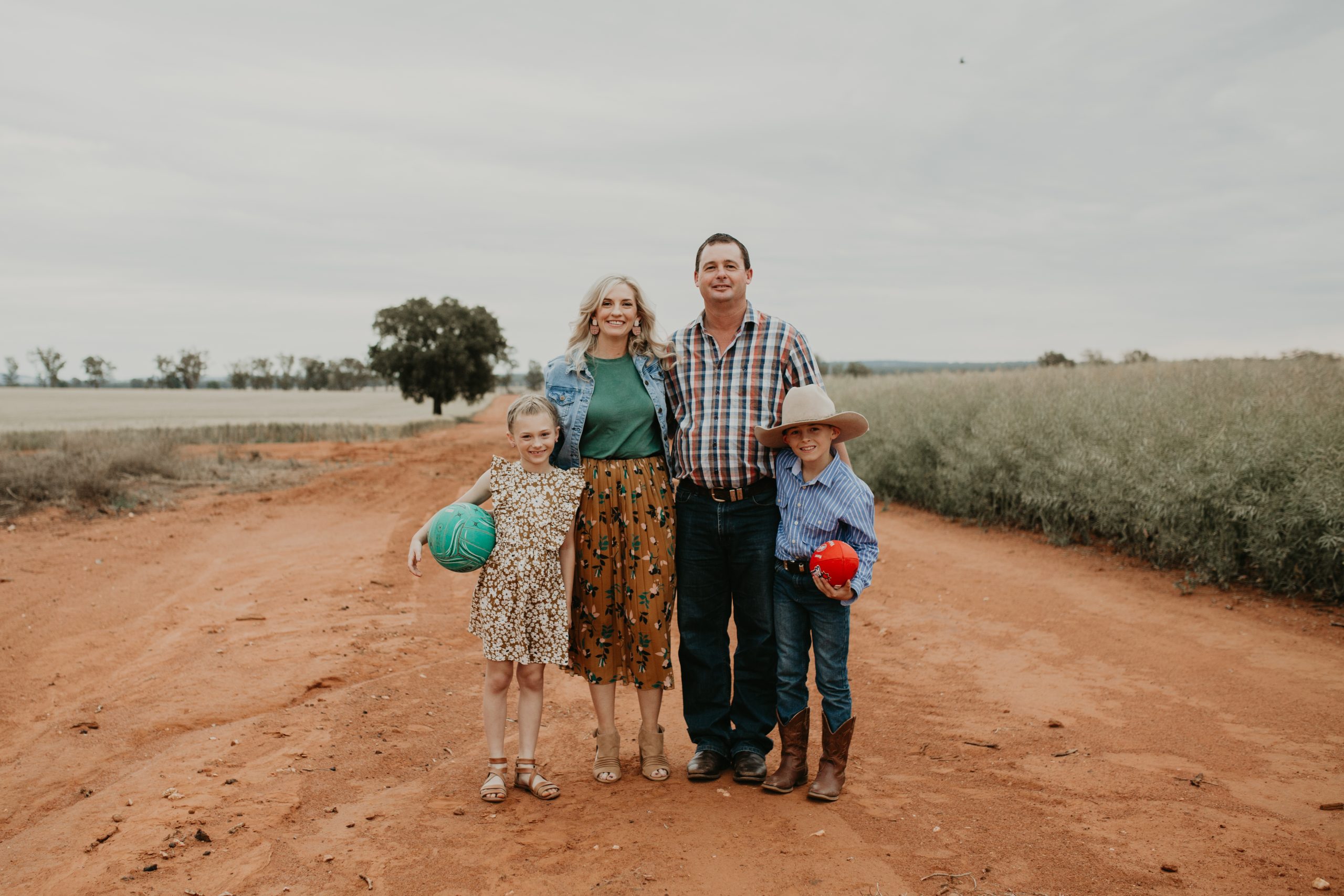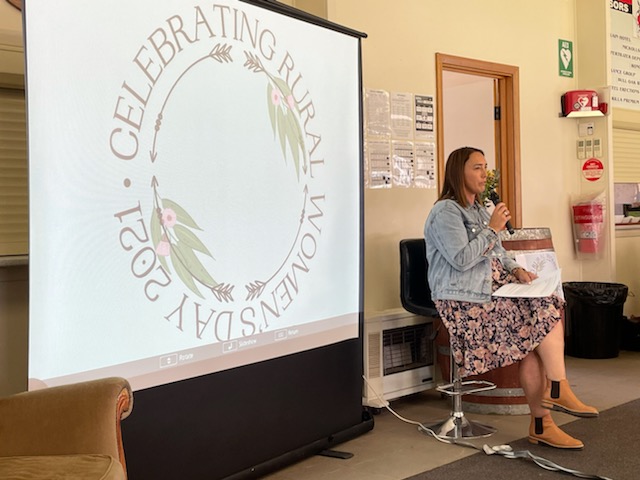
Coming Full Circle: Dani Nickolls’ Journey Back to the Farm
Stepping into her role working on the family farm is almost like coming full circle for Dani Nickolls.
Growing up on Kangaroo Island, she loved life as a farm kid and the open space that comes with living on a grazing and cropping property.
But, as a talented athlete, the increasing travel for competitions meant it made more sense to move to the mainland, where it was easier to take up opportunities to compete at a state level in softball and basketball.
So, Dani swapped the rural life for a city one, boarding at Westminster College in Adelaide for her Year 12 studies. Little did she know the move to the city would one day lead her back to the country—and eventually into a more hands-on role in farm life.
“When I was at Westminster, I met my husband Wade there and we ended up staying together and doing a stint in Adelaide where we both studied,” she says. Dani studied sport and indoor/outdoor fitness and, after some encouragement from her mum, a course in Office and Business Management. “I never understood the value of that at the time, but it’s come in quite handy now,” she says.
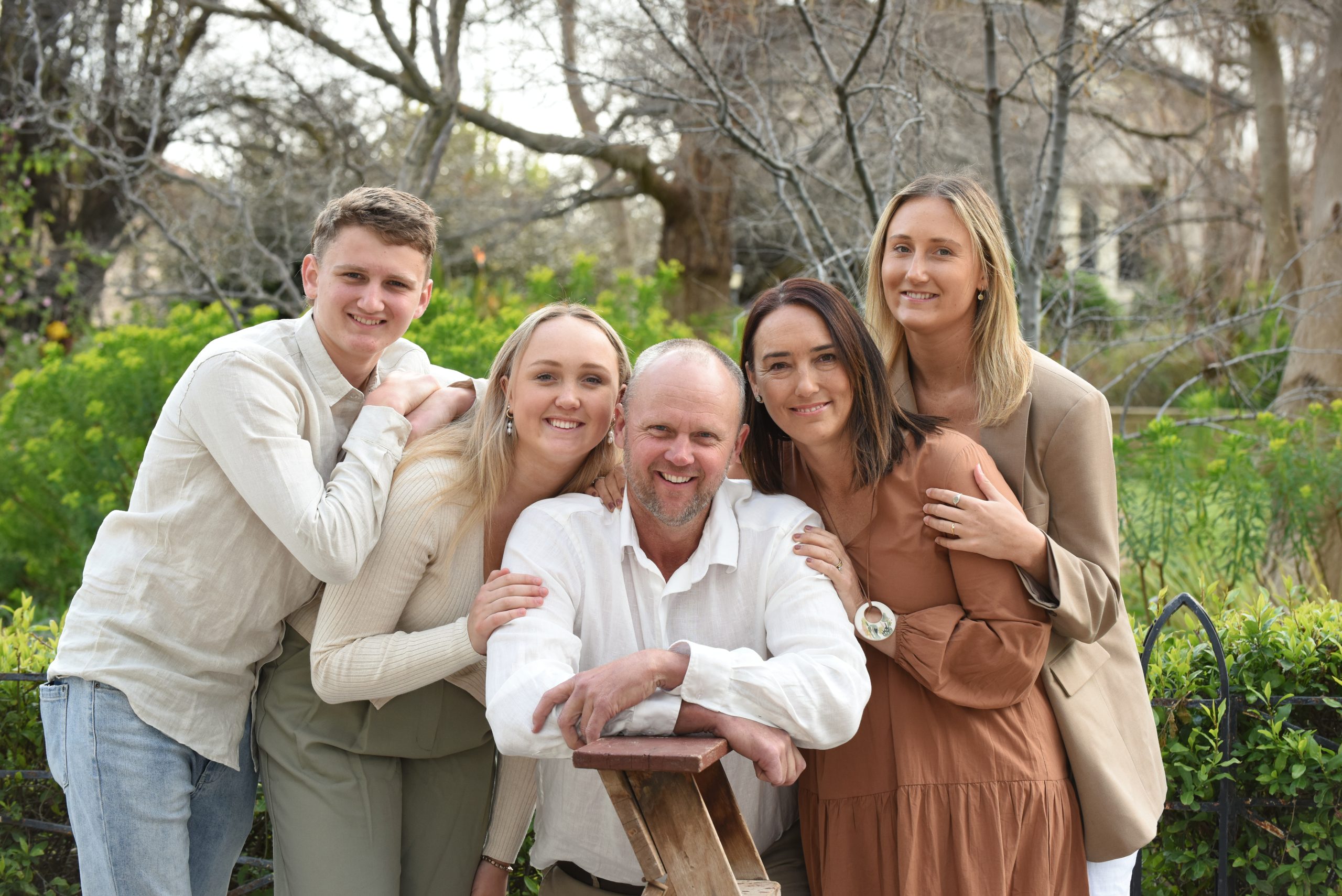
Above: Dani with her family, and right, at a Rural Women’s Day event.

Finding the new identity.
They moved to Pinnaroo in South Australia’s Mallee region in 1999, so Wade could work on his family’s farm, which they now run in partnership with his brother Chad and his wife Natasha.
In the early years after moving back to Pinnaroo, Dani had to do whatever she could to earn an income. She worked on an olive farm, in a bakery, at Viterra silos sampling grain, with SA Potatoes in shed administration and at the Pinnaroo Hospital in admin, finance and payroll.
Dani was also able to put her fitness training to good use as a personal trainer, running the gym at the Pinnaroo Hospital.
“I stayed in the fitness industry for a long time, and worked in other roles in business management and administration. I wasn’t aware that I’d be working on the farm, but when you move here you’re immersed in farm life and you end up bathing in it one way or another.”
Dani started by taking on the farm bookwork.
But over time the business grew and so did the workload, and juggling on-farm and off-farm roles became more challenging.
“I’d be doing all the farm bookwork at night—I’d come home from work and get straight into it. It got to the point where Wade said, ‘I really need you here more’ and when we sat down and looked at it and talked about it, I realised that what I was actually doing on the farm was more valuable than what I was doing off farm. It wasn’t worth the stress and trying to keep up with both. I had to see my role as a proper job—and it is a proper job.”
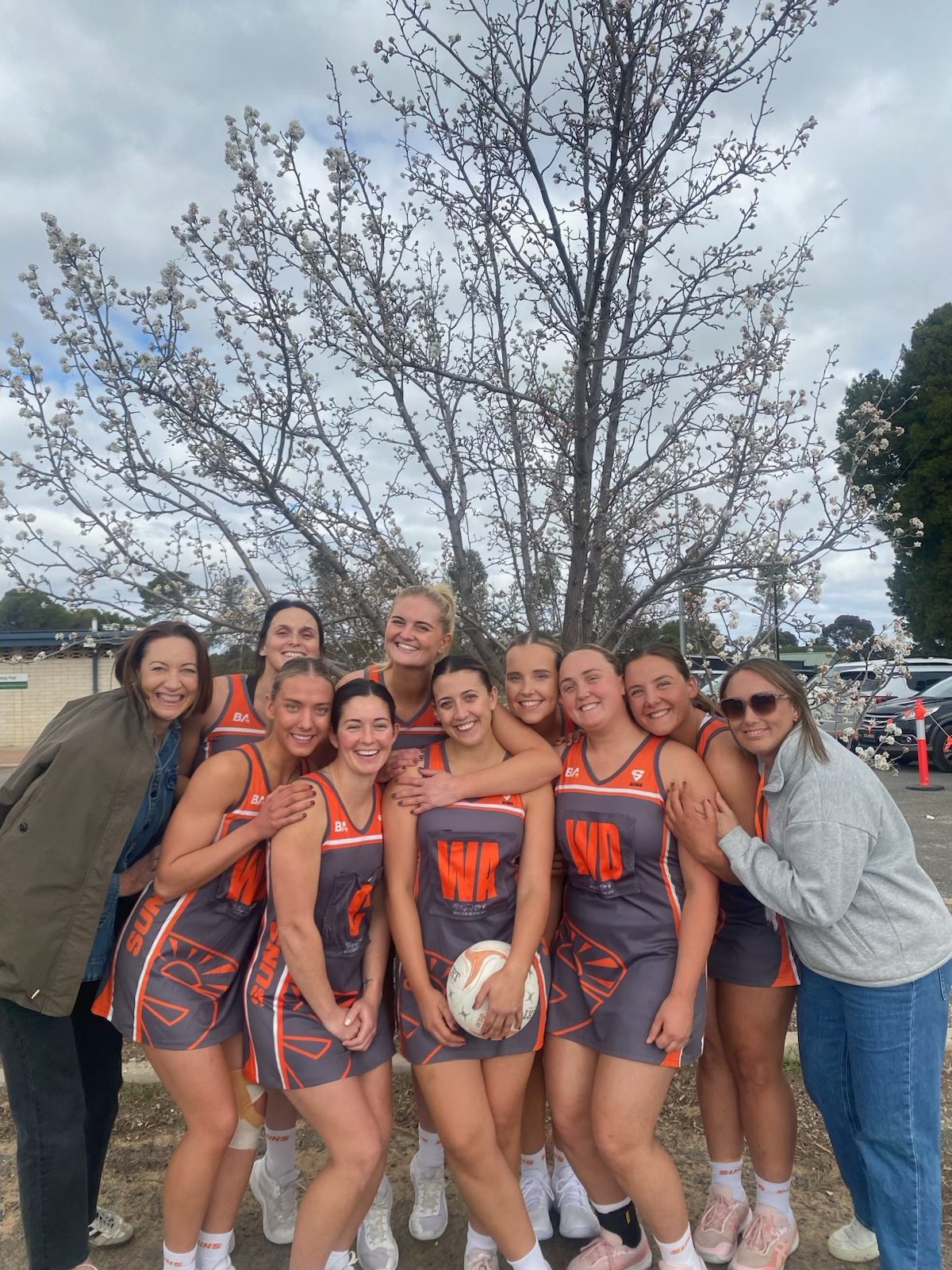
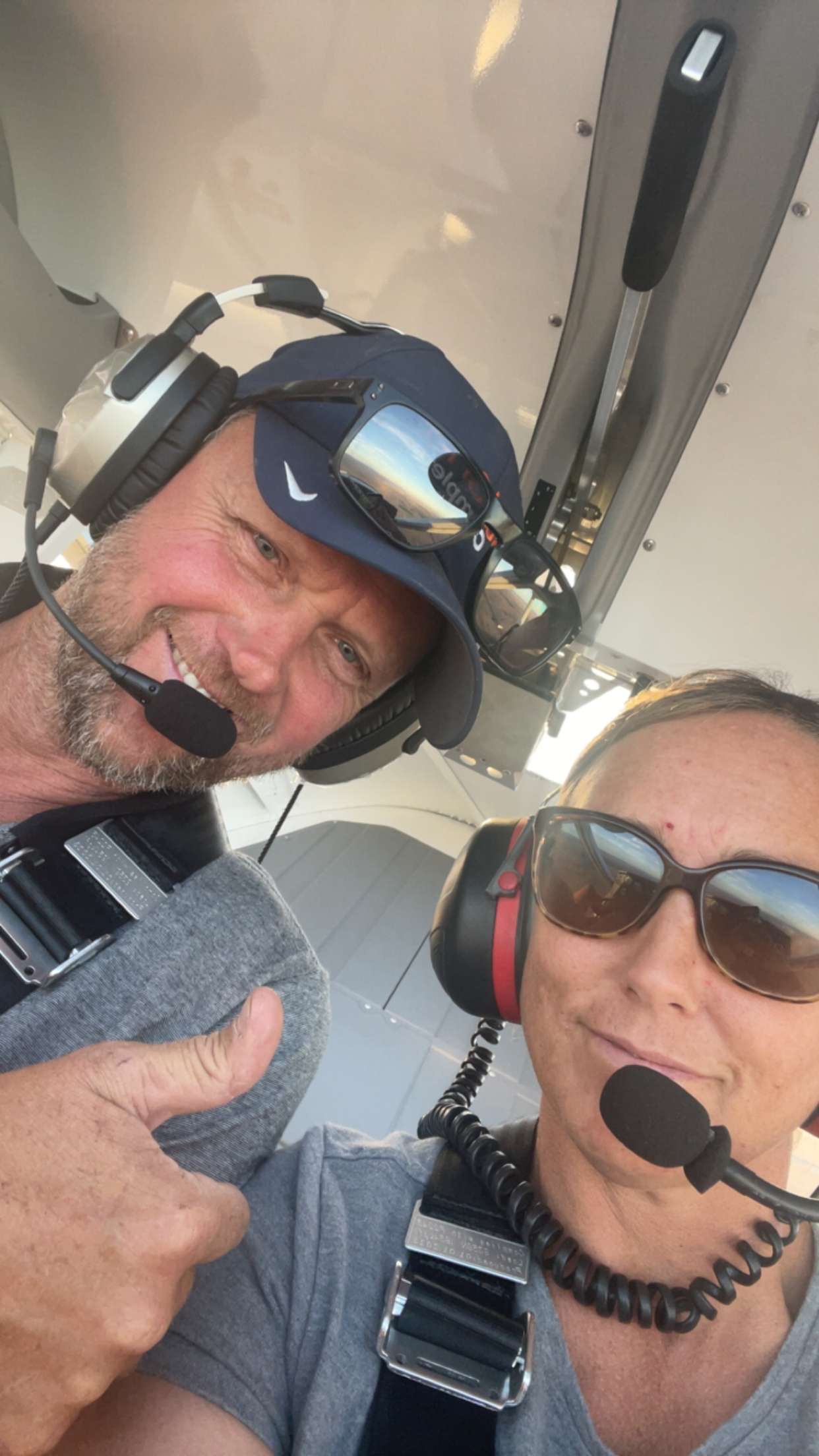
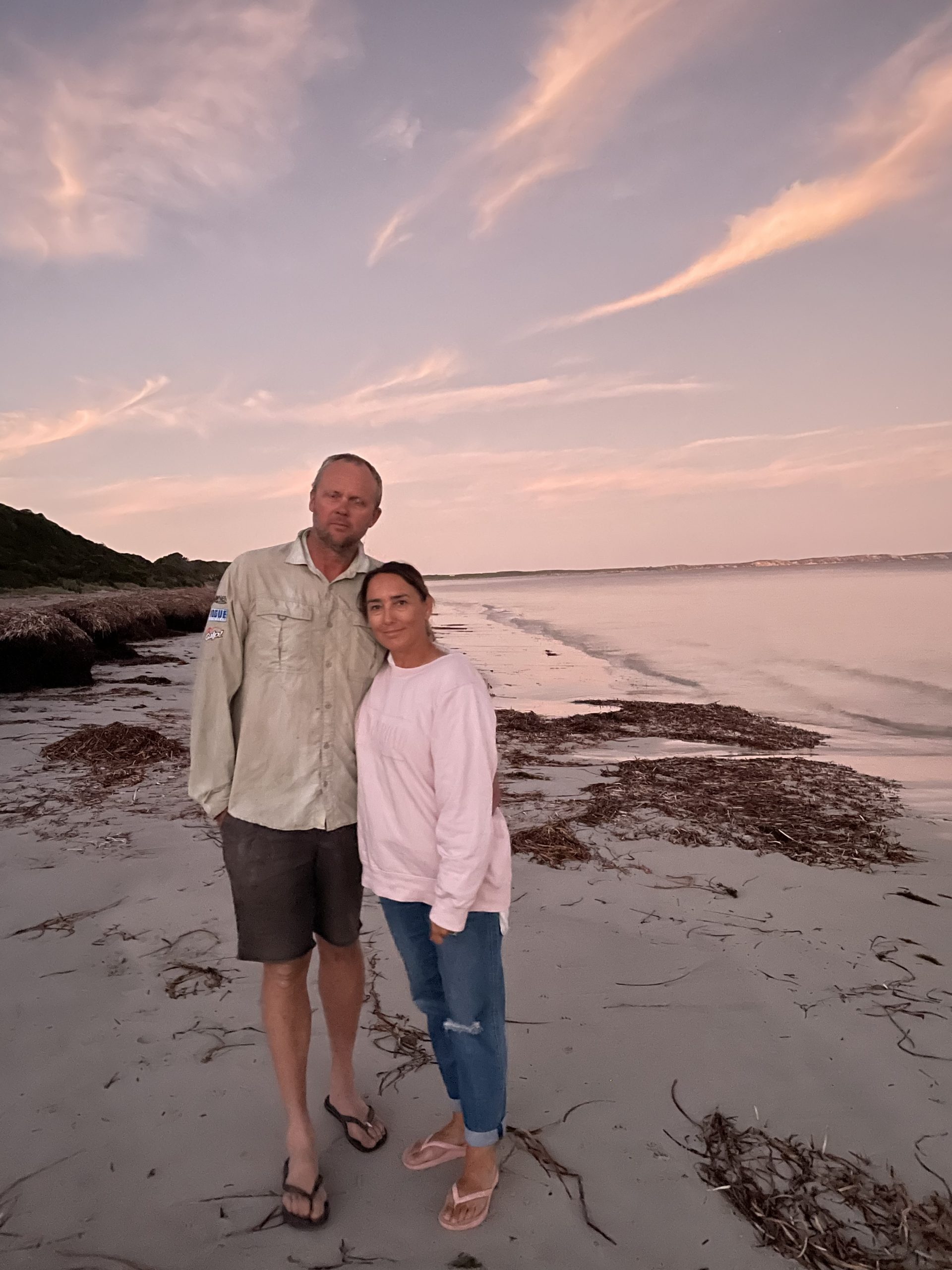
Above: Dani continues to be involved in the fitness and sporting side of her community.
As the business continued to grow, so too did her need for knowledge and training.
“My work grew to evolve into other areas beyond just the bookwork, like driving chaser bins, moving stock, and taking on the work health and safety systems,” Dani says.
Dani has been attending WoTL programs and short courses to upskill for these roles for a number of years, as far back as when it was Partners in Grain.
“WoTL was active in our area, and they were organising workshops and programs that were actually here, so they were easier to get to. Then I went to my first Thriving Women conference and that really excited me. I come home with all this inspiration. That’s the beauty of WoTL—you learn so much, but even if you only put one or two of those things in place each year, you’re still moving forward and making positive changes.”
Dani became a regular at Mallee WoTL events, enjoying both the practical knowledge and training she could apply in the business, and the personal development programs.
“I’m someone who has always been interested in developing myself and WoTL has supported that development in so many ways. It’s given me an identity in the agricultural space. It’s given me purpose in what we do, and it’s given me confidence to say that I have a career in farming.”
When the region’s previous WoTL Ambassador ceased her role, the organisation approached Dani to take on the position.
“I had a background in local leadership, but I was a bit worried that I wouldn’t have the right knowledge or enough to offer. I think I didn’t realise how much I actually did know. I had good relationships and contacts in our community, and I was able to talk to people and understand what they wanted to learn. Through that, I could organise programs and workshops to meet those needs.”
One of the in-demand issues she’s helped bring workshops to the region on was succession planning.
“We had been through succession, and quite a few others were going through it. It’s an area that can be quite confronting, so being able to talk about it and access information about how to do it well is really important.”
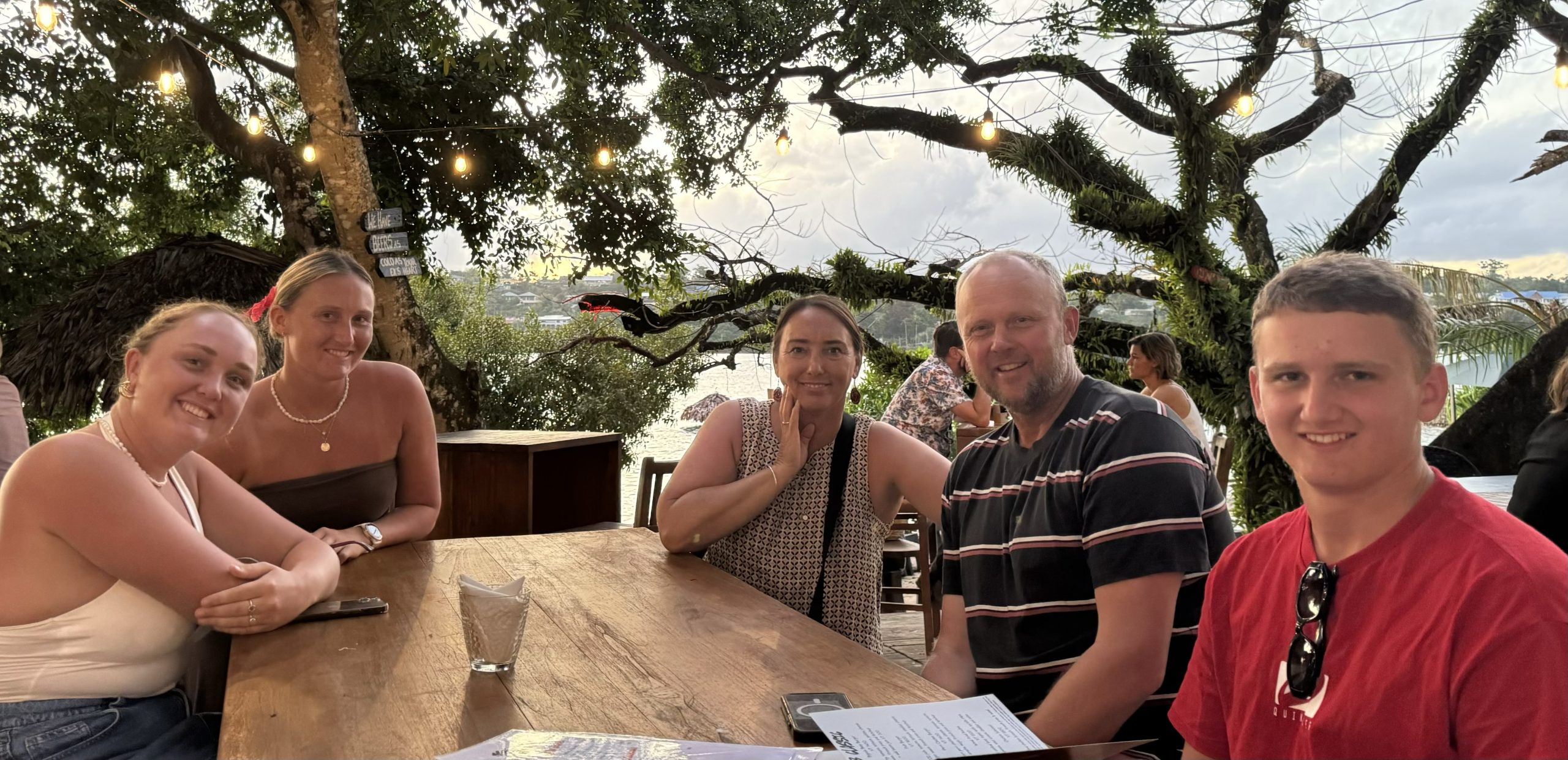
Above: Together with her family.
For Dani, even as a WoTL Ambassador, the learning continues.
The farming partnership produces broadacre crops including wheat, barley, canola and hay as well as lentils and other legumes. They also run grazing property with about 1000 head of Merino ewes.
Over the last two years, they’ve also expanded to establish a lamb feedlot, with the aim of diversifying the business and increasing income streams.
“There’s been a lot involved with setting it up—a lot of infrastructure inputs, but also another learning curve for us was adding in more employees. As part of that, we needed to learn how to best manage employees and understand their personality types and the way their values drive their work. WoTL’s been really helpful for that with their courses.”
One of the benefits Dani sees most come out of WoTL’s programs and her work as an Ambassador is the confidence it builds in rural women.
“What WoTL is doing is helping recognise the value that women bring to agriculture. It gives women confidence, and it gives them a voice and an outlet to be vulnerable and honest.”
It also provides a local support network in challenging times, such as drought.
“A hard reality of rural life is that you see people suffering at times. It is extremely important to have that personal network. It allows women to talk with others who have had similar experiences and who can provide support and guidance.”
While Dani’s career may have led her back to her farming roots, she’s still made plenty of time for her love of sport over the years, supporting her three children with their own sporting pursuits and coaching local community teams.
She also runs a popular Airbnb, Peppertree Cottage, giving guests a relaxing farm stay while also giving her an extra outlet to meet new people and share their picturesque piece of the country with others.
Follow WoTL on Facebook and Instagram, or check out the Events page, to keep up with our latest Ambassador events, like those Dani helps to coordinate at Pinnaroo.


